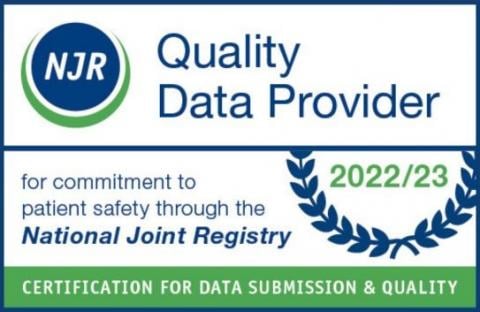
Movember may tend to focus on diseases that exclusively affect men, such as prostate or testicular cancer, but do you know that 1 in 10 men aged 50 have a heart age 10 years older than they are? Heart disease mortality is higher in men. Dr Manav Sohal, Consultant Cardiologist at New Victoria Hospital, shares some key facts about cardiovascular risk in men and how to keep your heart healthy.
Why is heart disease a male problem?
Although the mortality rate for cardiovascular events or conditions has dropped significantly in the past 20 years, heart disease is still the first cause of death in men in the UK.
Overall, men are more likely than women to develop heart disease, and in the UK, 1 in 7 men and 1 in 11 women will die from disease of the heart arteries.
Various reasons are thought to be the causes of increased Cardiovascular Disease (CVD) numbers in men.
Men tend to have more challenging jobs and cope with stress differently compared to women. They tend to pay less attention to follow a healthy diet, be more overweight than women, and could be less aware of their own symptoms and wellbeing.
Medical risk factors
There are four main risk factors that can expose you to higher chances of having strokes and other cardiac events:
- High blood pressure
This is the leading risk factor for heart and circulatory disease in the UK. Around 28% of UK adults have it, and around 50% of heart attacks and strokes are associated with high blood pressure. Importantly, up to 5 million adults in the UK are thought to be undiagnosed.
- Diabetes
This is a common condition that increases the risks for cardiovascular conditions. Diabetes results in damage to the inner linings of blood vessels and adults with diabetes are 2-3 times more likely to develop cardiovascular disease, and nearly twice as likely to die from heart attack or stroke than those without diabetes. Over half a million adults in the UK are thought to suffer from undiagnosed diabetes.
- High cholesterol
Cholesterol is a lipid, a fatty substance that is present in your blood vessels. There are two types of cholesterol, LDL and HDL. High LDL levels can be dangerous because cholesterol deposits in your arteries. “Bad cholesterol” represents a strong risk factor for cardiovascular disease and almost half of UK adults are thought to be living with cholesterol levels above the national guidelines total cholesterol (5mmmo/L).
- Lifestyle risk factors
Modifiable risk factors such as cigarette smoking, physical inactivity and poor diet contribute significantly to the risk of cardiovascular disease. At least one in seven adults smoke cigarettes, and up to 20.000 deaths from cardiovascular causes in the UK can be attributed to smoking. Similarly, increasing physical activity is felt to reduce the risk of developing cardiovascular disease by as much as 35%. More than one third of UK adults do not achieve recommended levels of physical activity (150 minutes each week), and only around one quarter consume the recommended minimum five portions of fruit and vegetables per day.
How to reduce lifestyle-related risks for heart disease
Addressing lifestyle factors is the most important, yet often most difficult, step.
To protect your heart health, you can start by introducing these small changes in your life:
- Seek help with smoking cessation
- Adopt diets low in saturated fats and avoiding highly-processed food
- Increase your physical exercise
- Lose weight
Taking these steps can have a hugely beneficial impact on some of the medical risk factors discussed earlier. Weight loss, smoking cessation and favourable diets all have a positive effect on blood pressure, cholesterol levels and also blood sugar levels.
CVD may not manifest until very late in its course. It is important not to ignore symptoms of chest pain and worsening breathlessness (especially on effort). Ultimately, the focus should be on preventing problems and addressing risk factors.
When to seek specialist advice for your cardiovascular health
If you have symptoms of chest pain, worsening breathlessness on exertion or palpitations, it is important to have those evaluated.
A thorough clinical assessment and non-invasive diagnostics (utilising ultrasound and CT scanning) can usefully confirm or refute the presence of significant disease of the heart arteries. If you don’t have symptoms, understanding your risk of future events may help prevent the potentially severe consequences of a heart attack.
At New Victoria Hospital, we offer an advanced Cardiac Diagnostic service with quick access to results and reports.
If you experience any symptoms, have a family history of heart disease or want to have peace of mind about your heart health, you can book an appointment with one of our Cardiologists by calling the Outpatient Department on 020 8949 9020 or:
During the consultation with a Cardiologist you can identify and treat modifiable risk factors, and receive advice on appropriate lifestyle measures to keep your heart healthy.













